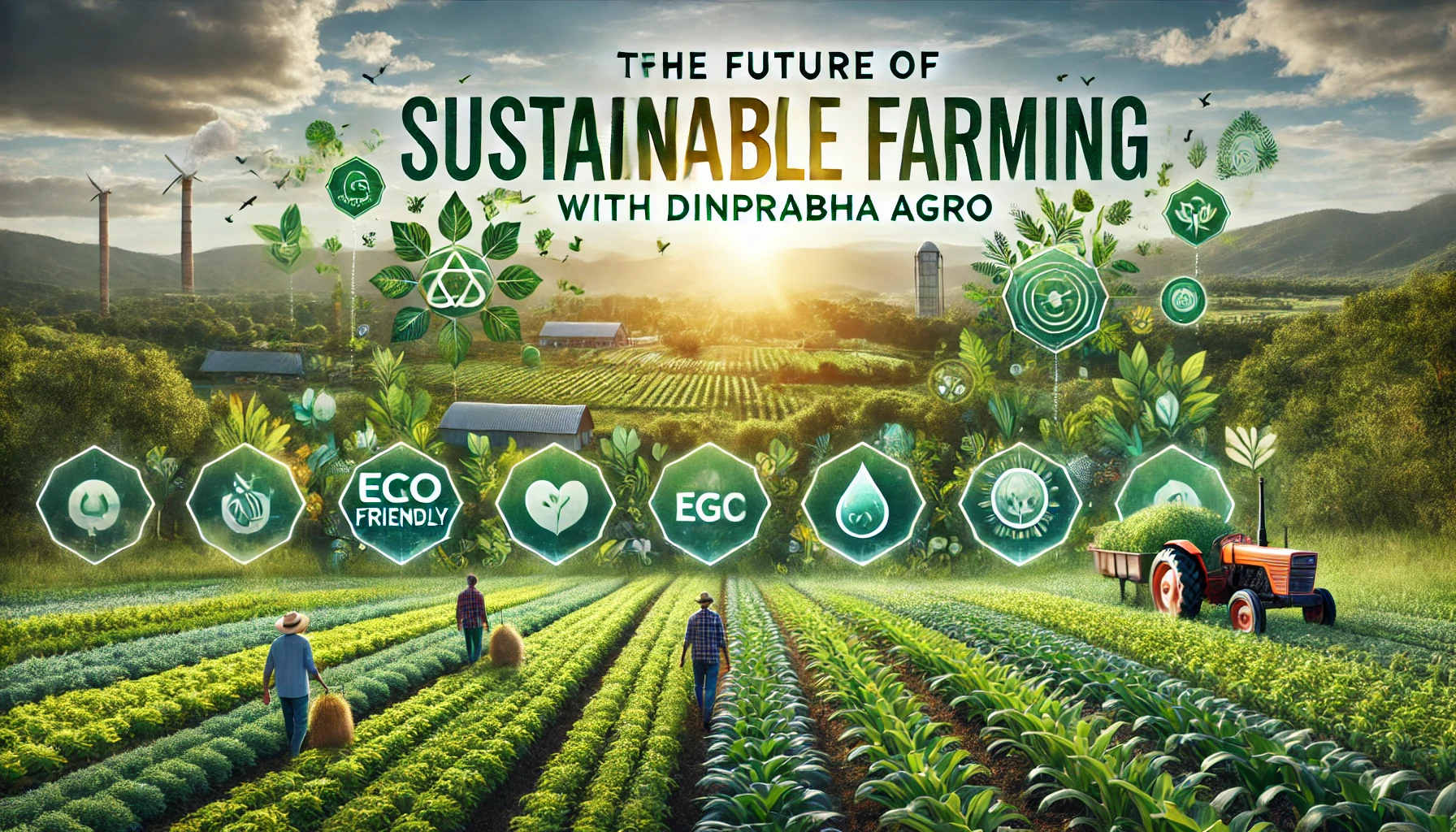Agriculture has been the backbone of human civilization for centuries. However, modern agricultural practices have led to environmental degradation, soil depletion, and biodiversity loss. Sustainable agriculture is a revolutionary approach aimed at producing food while preserving natural resources and ensuring economic viability. At Dinprabha Agroventures, we are committed to fostering sustainable farming practices that benefit farmers, consumers, and the environment alike.
What is Sustainable Agriculture?
Sustainable agriculture is a holistic approach to farming that integrates environmental health, economic profitability, and social equity. It ensures that present agricultural practices do not compromise the ability of future generations to meet their needs. This method prioritizes soil conservation, water management, organic farming, and eco-friendly pest control to maintain a balanced ecosystem.
Key Principles of Sustainable Agriculture
1. Soil Health and Fertility Management
Healthy soil is the foundation of productive agriculture. Sustainable farming involves practices like crop rotation, cover cropping, and organic composting to maintain soil fertility. By reducing chemical fertilizers and pesticides, we prevent soil degradation and enhance microbial diversity.
2. Efficient Water Management
Water is a precious resource, and sustainable agriculture emphasizes its responsible usage. Techniques such as drip irrigation, rainwater harvesting, and water recycling help reduce wastage while ensuring optimal crop growth. Farmers can adopt these methods to mitigate drought impacts and improve agricultural resilience.
3. Biodiversity and Crop Diversity
Monoculture farming depletes soil nutrients and increases vulnerability to pests and diseases. Sustainable agriculture promotes crop diversity, which improves soil health and enhances the resilience of crops against climate fluctuations. By integrating agroforestry and intercropping, farmers can achieve better yields while protecting biodiversity.
4. Organic and Eco-Friendly Practices
The excessive use of chemical pesticides and synthetic fertilizers has adverse effects on human health and the environment. Sustainable agriculture encourages the use of organic fertilizers, biopesticides, and natural pest control methods. These practices not only improve soil fertility but also promote healthier produce.
5. Efficient Waste Management
Reducing agricultural waste is crucial for sustainability. Composting organic waste, recycling crop residues, and repurposing farm by-products minimize environmental pollution. Sustainable waste management ensures that resources are utilized efficiently, reducing the carbon footprint of farming activities.
The Role of Technology in Sustainable Farming
Modern technology has significantly improved sustainable farming techniques. Innovations such as precision agriculture, drone monitoring, and AI-driven farm analytics help farmers make data-driven decisions. These technologies optimize resource utilization, reduce environmental impact, and increase crop productivity.
Benefits of Sustainable Agriculture
1. Environmental Protection
Sustainable farming minimizes deforestation, conserves water resources, and reduces chemical usage. This leads to lower pollution levels and helps combat climate change.
2. Economic Viability
Although transitioning to sustainable practices requires initial investment, it leads to long-term cost savings. Reduced dependency on synthetic inputs lowers production costs, while improved soil health results in higher yields.
3. Healthier Produce
Sustainably grown crops are free from harmful chemicals, making them safer for consumption. Organic farming enhances the nutritional value of produce, ensuring better health for consumers.
4. Empowering Farmers
Sustainable agriculture provides farmers with knowledge and resources to improve productivity while protecting natural resources. It fosters self-reliance and reduces vulnerability to market fluctuations.
Dinprabha Agroventures’ Commitment to Sustainable Farming
At Dinprabha Agroventures, we believe in a future where agriculture coexists harmoniously with nature. Our initiatives focus on:
- Educating Farmers: Providing training on sustainable practices, water conservation, and organic farming.
- Sourcing Responsibly: Partnering with farmers who follow sustainable agriculture methods.
- Promoting Eco-Friendly Products: Encouraging the use of biofertilizers, natural pesticides, and renewable energy sources in farming.



